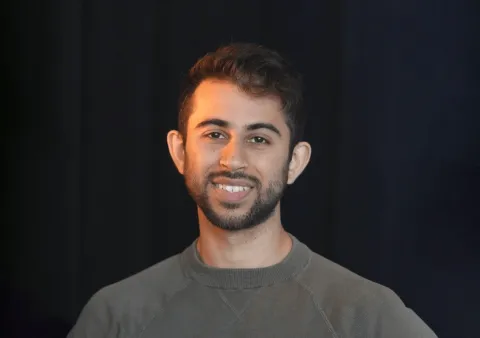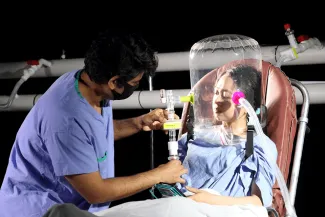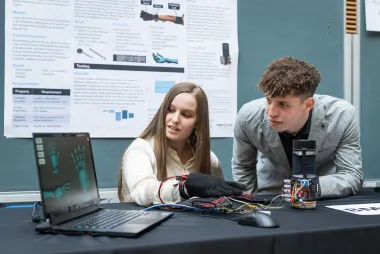"A long-term goal is to work with people commercializing technology and being the bridge between the technology innovators and the people on the business side."

Arpan Grover
- Degree:
- Bachelor of Applied Science
- Grad year: 2022
- Program:
- Campus: Vancouver
Job title as of 2023: Co-Founder and CEO, Clarivent Medical Inc.
Why did you want to study engineering?
There were a lot of influences. My initial plan was to do civil engineering and then go into architecture, which is a graduate degree, afterwards. Since I was always interested in math, science and problem solving, engineering seemed like a natural degree to pick. My dad is also an engineer, so I had a sense of his work and thought it could be a good path for me.
Why did you choose Biomedical Engineering?
I learned so much in my first year, but I wasn’t as excited about civil engineering as I was chemistry, biology and physics. Then halfway through that year, the Biomedical Engineering specialization started up. I talked to some of the professors that were running it, and they were very excited about the program, which inspired me. I took the risk and decided to join.
Tell us about your career since graduation.
I co-founded a startup company called Clarivent Medical, which is a spin-off from the nonprofit I was involved with as an undergrad. We were able to formalize one of the devices we were developing and are now partnering with Vancouver General Hospital and BCIT to get it ready for commercialization and patient use.
The device, the Bubble Helmet, is a clear, single-material helmet that provides non-invasive ventilation to patients who would otherwise need an oxygen mask or require intubation. A clear bubble goes over the patient’s head to create a positive pressure environment that helps the patient breathe easier. It has other benefits as well, including reduced ventilation time and decreased time spent in the ICU.
Everyone is surprised at how comfortable it is. Once you have it on for a few minutes, you quickly get used to the helmet, partly because the materials we chose are incredibly clear.

What would you like to achieve as an engineer?
A long-term goal is to work with people commercializing technology and being the bridge between the technology innovators and the people on the business side. There are a lot of business people who don’t necessarily understand the tech and can’t always offer the deep insights that someone can who has experience with engineering and technology.




